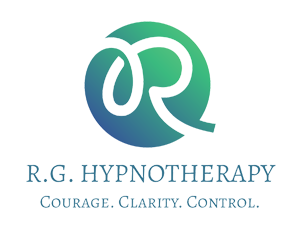International Women’s Day serves as a powerful reminder to celebrate the achievements of women worldwide, but it’s also an opportune moment to reflect on the importance of holistic wellbeing for women. In a world that often places immense pressures on women to juggle various roles, prioritizing both physical and mental health is not just an option – it’s a necessity. In this blog post, we will delve into the intricacies of how nurturing physical and mental wellbeing empowers women and contributes to their overall success, happiness, and resilience.
The Interconnectedness of Physical and Mental Wellbeing:
1. Physical Health: A Foundation for Empowerment
Physical health forms the bedrock upon which the edifice of holistic wellbeing stands. It encompasses not only the absence of illness but also the presence of vitality, strength, and the ability to engage fully in life. For women, prioritizing physical health means recognizing the unique aspects of their bodies and embracing practices that contribute to long-term wellness.
A. Exercise and Strength:
Regular physical activity is a cornerstone of maintaining physical health. Exercise not only keeps the body fit but also releases endorphins, the “feel-good” hormones that contribute to overall mental wellbeing. Whether it’s a brisk walk, a yoga session, or strength training, finding an activity that brings joy and vitality is crucial.
B. Nutrition and Nourishment:
A balanced diet is fundamental to physical health. Women, who often juggle numerous responsibilities, should prioritize nourishing their bodies with essential nutrients. Adequate hydration, a colorful array of fruits and vegetables, lean proteins, and whole grains contribute not only to physical health but also play a role in supporting mental clarity and focus.
2. Mental Health: Breaking the Stigma
While the importance of physical health is widely acknowledged, the significance of mental health is increasingly gaining recognition. Mental wellbeing is not merely the absence of mental illness but involves actively cultivating a positive and resilient mindset.
A. Stress Management:
Women, facing societal expectations and often balancing multiple roles, are susceptible to stress. Developing effective stress management strategies, such as mindfulness, meditation, or deep-breathing exercises, is essential for mental wellbeing. Recognizing stressors and proactively addressing them is a crucial step toward empowerment.
B. Seeking Support and Destigmatizing Mental Health:
One of the most empowering actions a woman can take is to seek support when needed. Whether it’s through professional counseling, talking to friends, or joining support groups, opening up about mental health challenges helps break down the stigma surrounding these issues. The more women share their experiences, the more we collectively contribute to a culture of understanding and empathy.
The Impact on Empowerment:
1. Career Empowerment: Thriving in Professional Spaces
When women prioritize their physical and mental wellbeing, the positive effects ripple into various aspects of their lives, including their careers. A healthy body and mind contribute to increased focus, productivity, and resilience in the face of challenges.
A. Confidence and Self-Efficacy:
Physical and mental wellbeing bolsters confidence. When women feel strong, healthy, and mentally resilient, they are more likely to assert themselves in professional settings, negotiate for opportunities, and pursue ambitious goals. Confidence is a key factor in breaking through glass ceilings and challenging gender norms in the workplace.
B. Work-Life Integration:
A healthy work-life balance is crucial for overall wellbeing. Women who prioritize self-care are better equipped to navigate the demands of both their professional and personal lives. Establishing boundaries, knowing when to ask for support, and taking time for oneself contribute to sustained success in the professional arena.
2. Personal Empowerment: Nurturing Relationships and Self-Love
Holistic wellbeing is not confined to external achievements; it also encompasses the quality of relationships and one’s relationship with oneself.
A. Building Strong Support Networks:
Physical and mental wellbeing positively influences relationships. Women who prioritize self-care are better equipped to nurture and sustain meaningful connections with friends, family, and partners. These relationships, in turn, become pillars of support during challenging times.
B. Self-Love and Personal Growth:
Nurturing mental wellbeing involves practicing self-love and self-compassion. Women who prioritize their mental health are more likely to embark on journeys of personal growth, embracing challenges as opportunities for learning and development. This resilience is a powerful tool for navigating life’s complexities with grace and strength.





